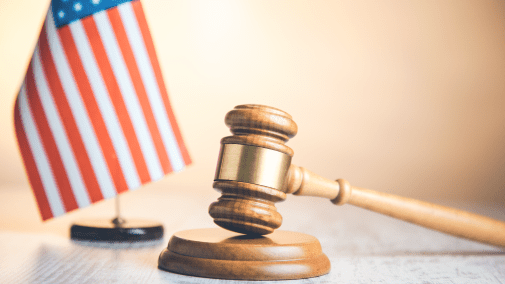
The appellate process in Florida is complex, often misunderstood by those unfamiliar with the legal system. Appeal lawyers in Florida play a critical role in ensuring that trial court decisions adhere to legal standards and are free from significant errors. Whether you’re considering filing an appeal or defending against one, understanding the role of appeal lawyers and the appellate procedures is essential.
This guide provides an in-depth look at the function of appeal lawyers in Florida, the steps involved in the appellate process, and how to navigate this intricate legal terrain.
What Are Appeal Lawyers in Florida?
Appeal lawyers, or appellate attorneys, specialize in representing clients during the appellate stage of a legal case. Unlike trial attorneys, who present evidence and argue facts before a jury, appeal lawyers in florida focus exclusively on legal arguments and written advocacy.
Their primary objective is to persuade appellate courts to either overturn or uphold a trial court’s decision based on errors in law or procedure.
Key Responsibilities of Appeal Lawyers:
- Analyzing Trial Records: They thoroughly review transcripts and evidence to identify legal errors.
- Crafting Legal Briefs: Appellate briefs are the cornerstone of appeals, presenting arguments and citing legal precedents.
- Presenting Oral Arguments: If granted, oral arguments provide an opportunity to address judges’ questions directly.
- Ensuring Compliance: Appellate lawyers ensure strict adherence to procedural rules, including filing deadlines and formatting requirements.
Understanding Florida’s Appellate Process
The appellate process in Florida allows parties dissatisfied with a trial court’s decision to seek review by a higher court. Unlike trial courts, appellate courts do not hear new evidence or witness testimony. Instead, they review the trial court’s application of the law.
Levels of Appellate Courts in Florida:
- District Courts of Appeal (DCA): These intermediate appellate courts review most trial court decisions.
- Florida Supreme Court: Handles cases involving constitutional questions, significant public interest, or conflicting appellate decisions.
- Federal Appellate Courts: Review cases involving federal law or disputes crossing state boundaries.
Steps in the Florida Appellate Process
1. Filing a Notice of Appeal
The process begins by filing a Notice of Appeal with the trial court clerk within 30 days of the final judgment. This document notifies all parties and the appellate court of your intent to appeal.
2. Assembling the Record on Appeal
The trial court record, including transcripts, evidence, and filings, is essential for appellate review. The appellant’s lawyer ensures that this record is accurate and complete.
3. Preparing and Submitting Briefs
- Appellant’s Initial Brief: Outlines the errors made by the trial court and argues why the decision should be reversed.
- Appellee’s Answer Brief: Responds to the appellant’s arguments, defending the trial court’s ruling.
- Reply Brief: Optional, but allows the appellant to address issues raised in the appellee’s brief.
4. Oral Arguments (Optional)
If permitted, lawyers present their case to the appellate court, answering judges’ questions and emphasizing key points from the briefs.
5. The Court’s Decision
After reviewing the record and briefs, and potentially hearing oral arguments, the appellate court issues a written opinion. The decision may affirm, reverse, or remand the case to the trial court.
Why Are Appeal Lawyers Essential?
1. Expertise in Legal Analysis
Appeal lawyers are trained to spot and articulate errors in trial court proceedings. Their ability to identify legal issues is crucial for building a strong appeal.
2. Mastery of Written Advocacy
Appellate briefs require precise, well-researched, and persuasive arguments. The success of an appeal often hinges on the quality of these written submissions.
3. Procedural Knowledge
Florida’s appellate courts have strict procedural rules. Missing a filing deadline or failing to adhere to formatting requirements can result in dismissal. Appeal lawyers ensure compliance at every stage.
4. Objective Perspective
Appeal lawyers bring a fresh perspective to the case, focusing on legal principles rather than emotional aspects, which often dominate trial court proceedings.
Common Misconceptions About Florida Appeals
1. Appeals Are a Retrial
Appeals do not involve new evidence or witness testimony. They are strictly a review of the trial court’s application of the law.
2. Winning an Appeal Is Guaranteed
Appeals are challenging, and success depends on the strength of the legal arguments and the existence of substantial trial court errors.
3. Any Lawyer Can Handle an Appeal
Appellate law is a specialized field requiring unique skills. Hiring a lawyer with extensive experience in appeals is essential for success.
How to Choose the Right Appeal Lawyer in Florida
Selecting the right appeal lawyer is critical. Consider these factors:
1. Experience in Appellate Law
Choose a lawyer with a proven track record in Florida’s appellate courts. Review their past cases and success rate.
2. Strong Writing and Research Skills
Examine examples of their appellate briefs to ensure they have the ability to craft persuasive and legally sound arguments.
3. Reputation and Client Reviews
Look for testimonials and ratings on platforms like Brownstone Law to gauge the lawyer’s professionalism and client satisfaction.
4. Communication Skills
The ability to clearly explain the appellate process and legal strategies is essential for a productive attorney-client relationship.
5. Transparent Fee Structure
Appeals can be expensive, so ensure the lawyer provides a detailed estimate of costs, including filing fees, transcript preparation, and attorney fees.
The Importance of Appeals in Florida’s Legal System
Appeals play a vital role in maintaining justice and fairness. They ensure:
- Consistency in Legal Interpretation: By addressing conflicting trial court rulings.
- Accountability: Preventing errors in the application of law.
- Development of Law: Establishing new legal precedents that shape future cases.
Appeal lawyers are at the forefront of this process, ensuring that justice is served and the legal system remains robust and credible.
Finalization
Understanding appeal lawyers and Florida’s appellate procedures is key to navigating the legal system effectively. Whether you’re seeking to challenge a trial court decision or defend a favorable ruling, working with an experienced appellate attorney can significantly impact the outcome of your case.





Leave a Reply